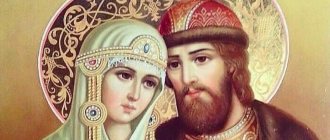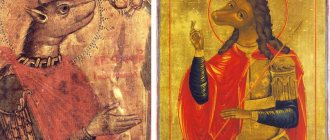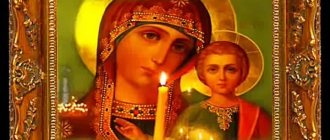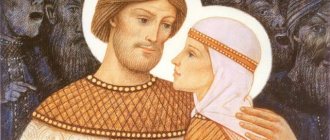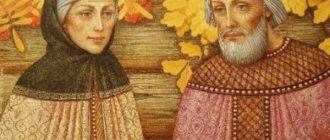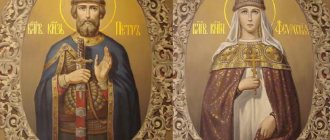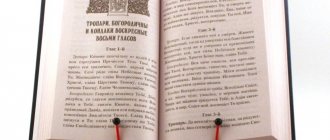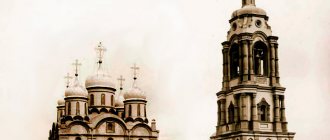Day of Family, Love and Fidelity
The holiday is very young for our country. It was celebrated for the first time only in 2008. The holiday has already acquired its own distinctive signs. For example, on July 8, a medal is necessarily awarded to those families in which harmony reigns. And the symbol of the holiday is the daisy flower, so gentle and simple, modest, like the incorruptible and eternal feeling of people who truly love each other.
How to make daisies with your own hands for the holiday, see these articles:
Children's craft "Chamomile" for the little ones
Chamomile made of polymer clay
Volumetric daisy card
Paper chamomile
Chamomile compliment - an unusual do-it-yourself postcard
The holiday is celebrated in every corner of our country. And special festivities on this day take place in Murom. Why do you think?
Parable - the story of Peter and Fevronia
This story began a long time ago, at the end of the 17th century. Prince Pavel ruled in the glorious city of Murom. Everything was fine both in the state and in the prince’s family. But trouble happened. The serpent-tempter in the form of Paul began to visit his wife. The frightened wife told about this and did not remain silent. They decided to find out from the serpent how to defeat him. The prophecy said that the serpent would die by the hand of brother Paul, by his sword. My brother's name was Peter. Like a good brother, Peter was not afraid to fight the serpent.
The insidious serpent was defeated, but droplets of poison fell on Peter’s skin. Overnight, the hero’s skin became covered with ulcers, and Prince Peter fell ill. But the Murom healers just shrugged their shoulders and could not cope with the illness. And they sent messengers to all ends of the kingdom-state. Nobody could help. But in the distant land of Ryazan there was a simple peasant woman who graciously agreed to cure Peter. The peasant woman's name was Fevronya. But Fevronya wanted to become Peter’s wife, a princess, for her service. “It is not proper for me to treat a prince if I am not his wife,” said the girl. The prince reluctantly agreed and came to Fevronya. The wise girl anointed Peter's ulcers with ointment, but only avoided one side. Fevronya knew that the prince would decide to deceive.
Peter promised her mountains of gold, but he never kept his word. He went back, but not even a day passed before his illness returned. And then Peter realized his mistake and went to Fevronya to bow low and propose marriage. Fevronya was not angry with the prince, accepted his offer, cured him and became Princess of Murom.
Paul died, Peter began to rule the state. But the prince’s associates did not like her and opposed her unequal marriage with a peasant woman. The princes and their wives began to plot intrigues and create lies in vain, they ordered to drive Fevronya out of the city, allowing her to take only one item. But she didn’t want to take anything except her husband. Peter left the city with Fevronya, but riots began and a ruler was never chosen. Peter and Fevronya returned, did not hold any grudge against the boyars, ruled wisely, skillfully, always helped those in need, and decided everything fairly.
Already in old age, Peter and Fevronya went to a monastery together, taking monastic vows and taking the names David and Euphrosyne. More than once they prayed to have the happiness of dying on the same day. This happened on June 25 or July 8 according to our calendar.
It is noteworthy that the holy spouses asked to be buried together, in the same grave, but according to church customs this was not supposed to be done. As time passed, they decided, at the insistence of the hierarchs, to open the grave. Imagine everyone’s surprise when they saw the spouses lying together. History repeated itself three times. For the third time, the relics of the saints were forever buried together under the arches of the Murom Trinity Monastery. Boundless love conquered everyone.
In custody
Here is such a difficult story about the love of a couple from the city of Murom. Since then, loving Peter and Fevronya have been revered. The parable is passed down from mouth to mouth, from generation to generation. The saints are approached with prayer and requests for finding a family, for harmony, fidelity of spouses and the conception of heirs.
Prayer to Peter and Fevronia for the preservation of the family and family well-being
“Holy righteous spouses, Peter and Fevronia, pious, praying for everyone who suffers and needs the help of the Lord! Take away sorrows, discord and squabbles from my house, save my marriage, blessed by the Lord, forever and ever. Just as you lived in peace and harmony, so I want to live with my husband, to serve our Father, to fulfill His instructions, to know His Kingdom. I trust in your mercy with all my heart and in your prayers for my family to the Almighty Lord. Do not leave us, spouses (names), in sadness, do not leave us in joy. Bless the family for a righteous life that is pleasing to the Lord God. In the name of the Father, and the Son, and the Holy Spirit. Amen."
We must always remember the lesson that the parable about their lives gives us: true love is hard, painstaking work, it goes only to those who are ready to develop it, support it, who are ready to honor their spouse, remain faithful to him and stay with him even in grief , and in joy.
And watching films about Peter and Fevronya is instructive and exciting. A beautiful and wise love story will give all generations a reason to think about the main thing:
And although it all started not so romantic, the result was the blossoming of true love and harmonious relationships, which nothing could stand in the way of...
Love and take care of each other, friends!
Behold, in the Russian lands there is a city called Mur. In it there is no autocratic and noble prince, as I told [] by the name of Paul. From time immemorial, hating the good of the human race, the devil planted [a] hostile flying serpent on the wife of that prince for fornication. And she was like a beast, but the people who came were her dreams [], like the prince himself sitting with his wife. The same dreams abounded many times, but the wife did not hide this, but told her husband everything that was happening to her, and the hostile serpents had power over her. The prince thought about what to create the serpent, but was perplexed. And he said to the wife: “I’m thinking, wife, but I’m not sure what to do to displease him. We don’t know how we will bring death upon us. If he speaks such words to you, ask him about this and with flattery: does he know that he is hostile in his spirit, from which he wants death. If you weigh [], having told us, free yourself not only in the present world of the evil of his breath and hissing and all the stinginess [], which is stinking to say, but also in the future age of the unhypocritical judge of Christ, be merciful to yourself!
The wife of her husband firmly accepted the verb into her hearts and thought in her mind: “It is good to be like this.”
One day, a serpent who was hostile to that one flew to her, but she had a good memory in her heart, and offered flattery to her hostility, saying many other speeches, and still respectfully asking him, praising him, saying that “he weighs a lot [] , and weigh the end [], what will it be and from what?” He, the hostile and charming man, was seduced by a kind seduction from his faithful wife, as Nepscheva [] uttered a secret to her, saying: “My death is from Peter’s shoulder, from Agrikov’s sword!” []
The wife, having heard such a speech, firmly kept it in her heart even after the departure of that hostile reason to her husband’s prince, as if he were a serpent. The prince heard this and was perplexed that there was death from Peter’s shoulder and from Agrikov’s sword.
Having a brother with him, a prince named Peter. One day he called him to himself and began to tell him the serpent’s speeches, as he had told his wife. Prince Peter, having heard from his brother that the serpent called his name was the outcome of his death, began to think, without hesitation, more courageously, how to kill the serpent. But there is still a thought in him, as if he does not know Agrikov’s sword.
Having the custom of going to churches alone. Outside the city there was a church in the same monasteries of the Exaltation of the honorable and life-giving cross. And he came to her alone to pray. The youth appeared to him, saying: “Prince! Did you want to show you Agrikov’s sword?”
Although he fulfilled his desire, he said: “Yes, I see where it is!” The boy said: “Follow me.” And showing him a well in the altar wall between the stones and a sword lying in it. The noble Prince Peter took that sword and came and gave a reason to his brother. And therefore the days are like [the] time that he may kill the serpent.
All the days he went to his brother and to his demolition to worship. The key is for him to come to the temple to his brother. And at the same hour he went to take his temple down and saw his brother sitting by her. And having left her again, you met someone from those who stood before his brother and said to him: “For I departed from my brother to be demolished, but my brother remained in his temple. But I, who have not become numb in any way, will soon come to the temple for my demolition and will not be alien to anyone else, how can my brother find me in the temple with my daughter-in-law?” The same man said to him: “No way, Lord, after your departure, your brother did not leave his temple!”
He understands the craftiness of the evil serpent. And he came to his brother and said to him: “When have you come? I left you, and after hesitating nowhere, I came to your wife in the temple and saw you sitting with her and wondered how I had been found before. This capa arrived, but after hesitating nowhere, you, we don’t know what my forerunner [], will be found here in the future.” He said: “By no means, brother, did I leave this temple after your departure and did not leave my wife.” Prince Peter said: “Behold, brother, the cunning of the evil serpent: let me seem to be you [], if I did not want to kill him [], as if I did not perceive [his] brother to you. Now, brother, don’t go away from here, I’m going there brotherly with the serpent, so that with God’s help this evil serpent will be killed.”
And I took the sword, called Agrikov, and came to the temple to demolish it, and seeing the serpent with the vision of a brother, and firmly convinced that it was not his brother, but a lovely serpent, and struck him with the sword. The serpent appeared by nature and began to tremble and became dead and sprinkled the blessed Prince Peter with his blood. Because of that hostility, he suffered from sharp blood and ulcers, and the illness that came upon him was very serious. And in your obsession you sought healing from many doctors, but received none from one.
Hearing that there were many doctors within the borders of the Ryazan land, he commanded himself to lead there, lest he himself turn gray on horseback from a great illness. He was quickly brought to the borders of the Ryazan land and sent his synclite to look for doctors.
Only the young man shied away from those approaching him in a manner that was called Affectionately. And he came to a certain house by the gate and saw no one; and he went into the house and no one looked at him; and going into the temple and in vain the vision is wonderful: there is only one maiden sitting and weaving, and a hare galloping in front of her.
And the girl said: “It is absurd for a house to have no ears and a temple to have no eyes!” The young man did not understand that verb, the girl’s speech: “Where is a man of the male gender who lives here?” She said: “My father and my mother went to cry [to] each other, but my brother went through his legs to see the world.”
The young man did not understand her verb, marveling, in vain and hearing a thing similar to a miracle and a verb to the girl: “I came down to you and I see you doing, I saw a hare jumping in front of you and I hear from your mouth some strange verbs and we don’t know this [] that verbose. The first one said: “It is absurd for a house to have no ears and a temple to have no eyes.” About your father and mother, he said, “I dosha cry to each other,” but he said about his brother, “see through your legs in the Navi.” And I didn’t understand a single word from you.” She said to him: “Don’t you understand this! He came to this house and to my temple below and saw me sitting in simplicity []. If there were a dog in the house and it smelled you coming to the house, it would bark at you: the house has ears. And if there had been a child in my temple and the sight of you coming to the temple, it would have said to me: behold, the temple has eyes. And as you say about your father and mother and brother, how my father and mother weep for each other - they went to the burial of the dead and there they weep, and when death comes for them, others will begin to weep for them: this is borrowed weeping. About my brother, these verbs say that my father and my brother are tree-dwellers, in the forest they eat honey from trees. My brother is now going for such a thing, as if he were to climb a tree to the heights, look through his feet to the ground, thinking, lest he fall from the heights. If anyone breaks away, this one will gobble your stomach. For this reason, I died, as if I was walking through my legs in the Navi.”
The young man said to her: “I see that you are a wise girl. Tell me your name." She said: “My name is Fevronia.” The same young man said to her: “I am the Murom prince Peter and serve him. My prince has a serious illness and ulcers. Because he was cut off by the blood of a hostile flying ferocious serpent, he killed him with his own hand. And in my obsession I sought healing from many doctors and received none from one. For this reason, I commanded myself to bring this, as I heard many doctors here. But we do not know what they are called, nor do we know their dwellings, and for this reason we ask about it.” She said: “If anyone had demanded your prince for himself, he could have healed him.” The young man said: “What are you saying, why should anyone demand my prince for himself? If anyone heals, my prince will give him a lot of property. But tell me the name of the doctor who is and where his dwelling is.” She said: “Yes, bring your prince here. If he is soft-hearted and humble in his responses, may he be healthy!”
The young man soon returned to his prince and told him everything in detail, as he had seen and heard from the girl. The noble Prince Peter said: “Yes, take me where the girl is.”
And I brought him to that house, and there was a girl in it. And the servant [] sent his servants to her, saying: “Tell me, maiden, who is there to heal me? May he heal me and give me much wealth.” She said without hesitation: “I am a healer, but I do not demand that he accept it. The imam’s word to him is this: if the imam does not have a spouse for him, you do not need [to] heal him.”
And the man came and told his prince what the maiden had said. Prince Peter seems to be indifferent to her words and thoughts: “Why should a prince who is a tree-dweller take a wife?” And he sent a speech to her: “Cry to her that this is her medicine, that she may heal. If he heals, the imam will give him his wife!”
Having come, I decided the word for her. She took the vessel, small, drawing sourness from her own and blowing on her and saying: “Let them establish a bathhouse for your prince and let him anoint it on his body, where there are scabs and ulcers, and let one scab be left unanointed. And he will be healthy!”
And she brought such anointing to him. And he ordered to establish a bathhouse. At least tempt the maiden to answer, even if she is wise, as if she had heard about her words from her youth. He sent a messenger to her with one of his servants in one word, rivers: “If this maiden wants me to be a wife for the sake of wisdom and if she is wise, let her inflict on me a fight [] and ports and ubrusets [] in a time [] , but I’ll stay in the bathhouse.”
The servant brought a load of wood to her and gave her and the princess the word of the tale. She said to the servant: “Come up to our cave and pick up some logs from the beds and carry them away.” He listened to her and took down the log. She measured out an inch and said: “Cut this off from this log.” He will cut it off. She also said: “Take these ducks from this log and go and give them to your prince from me and say to him: at what hour I will comb all this, and let your prince prepare for me in this duck a camp and the whole building, with which he will account for its linen.” . The servant brought ducks and logs to the prince and told the girl a story. The prince said: “Shed, darling girls, it’s impossible to eat a tree in such a small time and create a blue-green structure in such a small time!” The servant came and gave her a speech to the prince. The girl renounced: “Is it possible for a man of a man’s age to eat a meal in a small year, and then remain in the bathhouse, to create srachitsa and ports and ubrusets?” The servant went away and told the prince. The prince was surprised at her answer.
And according to the time, Prince Peter went to the bathhouse to wash himself and, at the command of the maiden, anointed his sores and scabs with anointing. And leave one scab not anointed at the command of the maiden. When I left the bathhouse I suffered nothing painfully. The next morning I saw the whole body healthy and smooth, except for a single scab, which had not been anointed at the command of the maiden. And marveling at the speedy healing. But I don’t want my wife to take home her fatherland for [her] sake and send gifts to her. She's not nice.
Prince Peter went to his fatherland, the city of Murom, hello. There is not a single scab on him, and he has not been anointed with the maiden command. And from that scab, many scabs began to spread across his body from the very first day he went to his homeland. And he was cut off with many ulcers, just like the first.
And return again for the finished healing to the maiden. When he came to her house, he sent an ambassador to her with a cold, asking for healing. She said in no small degree of anger: “If I have a husband, let him be healed.” He gave her his word with firmness that he would take her as his wife. This again, as before, give him the same healing that was written before. He soon received healing and gave it to his wife. Princess Fevronia was guilty of the same thing.
She returned to her homeland, the city of Murom, and lived in all piety, transgressing nothing from God’s commandments.
Within a few days, the ordained Prince Paul departed from this life, and the blessed Prince Peter, through his brother, became the only autocrat of the city of Murom.
His princess Fevronia, his boyar, does not love his wives for the sake of his own, as if the princess was not for the sake of her fatherland, but I glorify God for the good for the sake of her life.
Once upon a time, someone from those who were coming to her came to the noble prince Peter [] to attack, as if “from whom,” he said, “the table comes out of disorder: for some reason, she takes the crumbs into her hand, as if she were smooth!” The noble Prince Peter, even if he tempted me, ordered me to dine with him at the same table. And as if I had finished dinner, she, as is her custom, took the crumbs from the table into her hand. Prince Peter took me by the hand and, reconnaissance, saw good-smelling Lebanon and incense. And from that I will leave the days to avoid temptation.
After a lot of time, his boyar came to him, saying with rage: “We want to serve you righteously and have you as an autocrat, but we don’t want Princess Fevronia, let him reign over our wives. If you want to be an autocrat, let it be another princess, but Fevronia, having taken the wealth to her satisfaction, will leave, whatever she wants!” Blessed Prince Peter, as if he had no custom of being angry about anything, did not answer with humility: “Let Fevronia speak, and let him hear what he speaks.”
They were filled with frenzy and thoughtlessness, and they set up a feast. And I will create. And, when she was already cheerful, she began to extend her cold-free verbs, like a pleading, depriving the saint of God’s gift, which God promised to eat even after death. And the verb: “Lady Princess Fevronia! The whole city and the bolyars say to you: give it to us, this is what we ask of you!” She said: “Yes, she’ll take it, she’s asking for it!” They, as if with one mouth, decided: “We, madam, want Prince Peter to rule over us. Our wives don’t want you, because you rule over them. Let’s take enough wealth for ourselves, go away as much as you want!” She said: “I promised you that whatever you ask, you will receive. But I say to you: give it to me, if I ask him from you” []. They are angry for the sake of the past, not knowing the future, and saying with an oath, as if “if you speak, you will stir up a single contradiction.” She said: “I ask for nothing else, except for my husband, Prince Peter!” They decided: “If you want it, we won’t tell you anything.” The enemy will fill their thoughts, as if Prince Peter does not exist, so they will appoint someone else as autocrat: each of them holds in their minds the boyars, as if he himself wants to be an autocrat.
Blessed Prince Peter did not love temporary autocracy, except for God’s commandments, but walked according to His commandments, adhering to these, as the God-voiced Matthew in his gospel proclaims, saying, “Whoever lets his wife go, except in the words of an adulterer, and marries another, commits adultery." This blessed prince, according to the Gospel, act according to his keeping as if he were mindful [], so that he does not destroy the commandments of God.
They, the wicked bolyars, gave them judgment on the river, because under the hail there was a river, the verb Oka. They float down the river in boats. There was someone in the blessed princess Fevronia’s ship, and his wife was in the same ship. The same man, having received a thought from the evil demon, looked at the saint with a thought. She, understanding his evil thoughts, quickly denounced him and said to him: “Draw water from the river sowing the land of this vessel with her.” He drew more. And he commanded him to drink. He's drinking. She again said: “Draw water from another country of this ship.” He drew more. And he ordered me to drink again. He's drinking. She said: “Is water equal, or is there only sweetness?” He said: “There is only one, lady, water.” Then she said: “She has only one female nature. Why would you leave your wife and think of other people’s thoughts?” The same person said that she had the gift of insight, being afraid to think about it.
When evening arrives, the bowl begins to be placed on the shore. Blessed Prince Peter began to think: “What will happen, having been persecuted by the will of the autocracy?” The wonderful Princess Fevronia said to him: “Do not grieve, prince, the merciful God, the creator and provider of everything will not leave us in poverty!”
On that day, blessed Prince Peter prepared his food for supper. And why [the] cook his trees are small, and the cauldrons hang on them. After supper, the holy princess Fevronia, walking along the riverbank and seeing the tree, blessed it and said: “May this great tree be in the morning, having branches and foliage.”
As soon as it happens. When she arose in the morning, that tree found a great tree, having branches and leaves. And as if the people had already collapsed and swept them into the courts from the shore, the nobles came from the city of Murom, saying: “Lord, prince! From all the nobles and from the whole city I came to you, so that you do not leave us orphans, but return to your homeland. Many nobles in the city perished from the sword, and even though they were in power, they killed themselves. And we all who are left with all the people pray to you, saying: Lord Prince, even though we have angered you and irritated you, we do not want Princess Fevronia to rule over our wives, but now we are slaves with all our houses, and we want and love and pray, yes do not forsake us, your servants!”
Blessed Prince Peter and blessed Princess Fevronia returned to their city. And he reigned in that city, walking in all the commandments and justifications of the Lord without blemish, in unceasing prayers and alms and to all people under their authority, like a child-loving father and mother. Besta, for love is equal to everyone, not loving pride, nor robbery, nor corruptible wealth, sparing, but growing rich in God. Besta is a true shepherd to his city, and not like a mercenary. Its city rules with truth and meekness, and not with rage. Accepting the strange, satisfying the greedy, clothing the naked, delivering the poor from misfortune.
When her pious repose arrived [], praying to God that her repose would occur in one hour. And he made a council, so that both would be laid in a single coffin, and commanded that two coffins be built for themselves in a single stone, with only one barrier between themselves. And the blessed Prince Peter was named David in the monastic rank, and the venerable princess Fevronia was named Euphrosyne in the monastic rank.
At the same time, the Venerable Fevronia, named Euphrosyne, brought the air into the temple of the Most Pure Cathedral Church with her own hands, and on it was the white face of the saints. The venerable and blessed prince Peter, named David, sent to her saying: “Sister Euphrosyne! I want to leave the body already, but I’m waiting for you, so that we can leave.” She said: “Wait, sir, until I bring air into the holy church.” He sent the second message to her, saying: “I won’t wait much longer for you.” And as a third he sent an ambassador to her, saying: “For I already want to die and do not wait for you.” She is the residual work of the air of that shyashe, having already not completed a single holy robe, having sewn her face and raised her, and behold [] her needle into the air and turned the thread, with it she shyashe. And he sent to blessed Peter, who was named David, about his death by the bath []. And, having prayed, his holy soul surrendered together into the hand of God in the month of June on the 25th day.
After her repose, people wished that blessed Peter would be laid inside the city near the cathedral church of the Most Pure Mother of God, and Fevronia outside the city in the monasteries near the Church of the Exaltation of the Honest and Life-Giving Cross, saying that “in this image it is not acceptable to lay the saints in a single tomb.” " And he established special coffins for them and placed their bodies in them: St. Peter, named David, placed the body in a special coffin and placed it inside the city in the church of the Holy Mother of God until morning, Saint Zhefevronia, named Princess Euphrosyne, placed the body in a special coffin and placed it outside the city at the Church of the Exaltation of the Holy Cross. The common coffin, which they themselves commanded to be hewn into a single stone, leaving it empty [] in the same temple of the Most Pure Cathedral Church, which is inside the city.
In the morning the people arose and found their coffins with special clothes, and they were placed in them. Their holy bodies were found inside the city in the cathedral church of the Most Pure Mother of God in a single tomb, which they themselves commanded to mortify. People are unreasonable, as if there is a restlessness in their stomachs about them, so after her honest death: I put the packs in special coffins and carried the packs away. And again the next day the saint was found in a single tomb. And I do not dare to touch their holy bodies and I lie in a single coffin, in which they themselves command, at the cathedral church of the Nativity of the Most Holy Theotokos inside the city, which God gave for the enlightenment and salvation of that city: those who are born with faith [] to with their relics, they receive infinite healing.
Let us, according to our strength, add praise to him.
Rejoice, Peter, for you have been given the power to kill the flying serpent! Rejoice, Fevronia, for in the most feminine head of the saints you had wisdom! Rejoice, Peter, for bearing scabs and ulcers on your body, you endured tribulation valiantly! Rejoice, Fevronia, for from God you had the gift in your virgin youth to heal ailments! Rejoice, Peter, for the commandments for the sake of God's autocracy willfully retreat, so as not to leave your wife! Rejoice, wondrous Fevronia, for with your blessing in one night a small tree grew great in age and wore out its branches and foliage! Rejoice, honest leader, for I have lived in humility and in prayer and in alms without pride; By the same token, Christ has given you grace, as even after death my body lies inseparably in the grave, but in spirit I stand before the Lord Christ! Rejoice, venerable and blessed one, for even after death you invisibly grant healing to those who come to you with faith!
But you, O most blessed wife, pray for us, who create your memory by faith!
Let me, the sinner, who wrote this off, be remembered as much as I heard; the ignorant, even if others wrote the essence, are leading more than me. Even though I am a sinner and rude, I trust in God’s grace and his generosity and hope in your prayer to Christ, laboring with my thoughts. Although you have honored the earth with praises, you have not touched the praises. For the sake of your humble autocracy and venerability, I want you to weave the crown after your death and not touch the weaving. Glorified by nature in heaven and crowned with true incorruptible crowns from the common ruler Christ. To him belongs all glory, honor and worship together with his beginningless Father, together with the most holy, good and life-giving spirit, now and ever and unto ages of ages. Amen.

